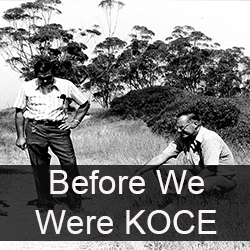Proud Two-Dad Household

Scott Sparks & Wilber Rubio are two proud dads who fostered-to adopt three siblings from Los Angeles-based nonprofit organization, RaiseAChild. Read their inspiring journey to starting a family and how they navigated the foster care process.
How did you two meet?
Scott/Wilber: We met the traditional way… online! We both lived in the NYC area. Wilber worked as a Program Manager for adults with traumatic brain injuries and Scott worked as an HR Executive. We became friends, and over time, our friendship became love. Shortly after we were married, Scott’s company asked him to relocate to Los Angeles for a new assignment. We decided to head west together.
Did you both know you always wanted to start a family?
Scott/Wilber: Yes. We considered several ways to build a family – from surrogacy to international adoption to domestic adoption. After investigating the different paths, we realized the need and opportunity in our own backyard that we couldn't ignore that option.
How did you meet your three children?
Scott/Wilber: We initially met the three siblings, Angel, Genesis “Geni” and Giovanni “Gio, in 2013 at a bowling party play date at Beverly Lanes in Montebello, California. At the time, Angel was three, Geni was five and Gio was seven. The play date was sponsored by the Los Angeles Department of Children and Family Services (DCFS), where prospective parents like us can meet children in foster care awaiting permanent adoption. It was a great opportunity for us to chat with the social workers there and meet a diverse group of children in a fun, pressure-free environment.
After that, we started the formal process to foster all 3 in 2013. The steps are: attending an orientation and completing an application, completing background checks, attending pre-approval Resource Family Approval (RFA) training, completing a home environment assessment, completing a psycho-social assessment, and finally, confirming approval and placement. In July 2013, Angel, Geni and Gio were placed full-time in our home. We fostered them for a year–almost to the day–until their adoption became final on July 14, 2014.

What is your household like today, raising one girl and two boys?
Scott: It definitely takes a village to raise a girl! Luckily, Wilber has a younger and older sister so he knew their personality and how to work with them. We also regularly reach out to close friends and family to help give us perspective and guidance on topics like grooming, emotions, behaviors and our daughter’s eventual progression to woman-hood.
Wilber: We believe that Genesis, or “Geni”, will have a very well-rounded perspective in life. We’ve taught her that she can do everything boys can do. We want her to know there are no boundaries for a girl whether it’s sports, academics, or socially. But we also do embrace her girly side–she is a total girly-girl and we love it!
Scott/Wilber: The boys are very close. Angel tries to do everything Gio does. They share a room and argue like all brothers, but in the end, Gio is very protective of both his siblings. We love laying in our room listening to them bicker and laugh and talk.
What advice do you have for anyone considering fostering to adopt?
Scott/Wilber:
#1: Fostering to adopt isn't for the faint of heart. The process will be educational, heart-warming and rewarding. Dive in headfirst. Put all of who you are into it. Give children your love and support and let destiny play out. They need your love, support and acceptance, regardless if they become your forever family. They need you, and whether you know it right now or later, you need them, too.
#2: Do your research. Choose a process that is right for you, your partner and your family! Whether that's working with a public or private agency, or directly with DCFS, there's no one right way. It’s important to remember that your main focus is doing what’s best for foster children. We, as a couple, made the decision to be transparent with our kids about their biological parents. Today, we still keep in contact, allow calls and social visits. But that’s completely at every parent’s discretion; there's nothing mandated by the courts.

How long were your children in foster care before you adopted them?
Scott/Wilber: Angel, Geni and Gio had been in foster care for about two years and lived in three different homes before coming to our home. During that time, their birth family’s parental rights had not been terminated yet. Their first placement was an emergency placement, where all three were taken into immediate care until a foster home could be identified. Their second placement was with an aunt for an extended period of time, until she determined later she couldn’t permanently care for three more in addition to her own. The third placement was with a family friend, who stepped up to care for the children temporarily since permanency was not an option. We were the children’s fourth and last placement.
Scott/Wilber: Adoption Day was an amazing day. Geni insisted on wearing a tiara… she said it was a special day! And a tiara was warranted. We had an entire courtroom filled with family and friends. There was a whole lot of applause, tears, cheering and happiness. We followed it with a big party at a local restaurant, Luminaria’s, where we had lunch and the children were showered with gifts. The restaurant even brought out congratulations desserts for us.
What was it like fostering as a same sex couple?
Scott/Wilber: Private agencies and public ones like DCFS are pretty educated today. It’s a norm now for LGBT people to foster to adopt. If we encountered people who are not up to speed, we used that as an opportunity to educate them. If they were not being supportive, we raised it up to a supervisor. Some foster parents might get offended, but we took it as an opportunity to educate. One time when we were both out at dinner, someone passed by our table and said, “Oh, it must be Mom’s night out! So great to see you Dads taking the kids out.” Our response was: “It’s mom’s night out every day. We are a two-dad household.” Even our kids have responded to people passing by, “We don’t have a mom at home. We have a Dad and a Daddy!” We love seeing the facial expressions from that response! When people learn that we are a two-dad household, they ask: “Who takes on the Mom role?” We just say, “We both take on the parenting responsibilities. For us, there is no gender expectation.”
How did each of your families feel about your decisions to foster and then adopt?
Scott: My parents were on board and very supportive of our decision to build a family from the beginning. Throughout our process, they came to court, helped with school, cooked dinners, cheered the children on at their baseball and soccer games, and were consulted during the home study. They are amazing grandparents.
Wilber: My parents were initially hesitant because of their devout Christian beliefs. They were respectfully tolerant of my marriage but I didn’t know how they would feel about bringing children into our family. I decided to test the waters with my dad on a road trip to Las Vegas. I said, “Dad, Scott and I want to adopt. Are you going to be okay with our future kids calling you Grandpa?” He paused for what seemed like a long time and then said, “Yes, of course. It’s not their fault!” Ha! We took that as a yes and moved forward. Later when my parents met Angel, Geni and Gio for the first time, they were happy and proud. My dad even asked, “Can I take my new grandchildren to church to show them off?”
Looking back, I imagine my parent’s hesitation was rooted in their conservative Christian upbringing in El Salvador. I’m surprised they were tolerant, but I’m thankful they’ve come to accept my children as part of the family. One testament to my parent’s support was when we all were featured (along with my dad) as a family in a Spanish language Honey Maid commercial. He wrote the script with producers of what he wanted to say. It was such a proud moment. I also have a younger and older sister who have been very open to my adopting from the beginning, and today are great aunts.

What were some positives and challenges you both encountered on your journey to foster and eventually adopt?
Scott/Wilber: One positive thing we experienced, thankfully, was having the support and partnership of DCFS social workers throughout the entire process. We knew they had very large caseloads, so we viewed our journey as a partnership with them. We were the “project managers” there to keep advocating for our children and pushing things along, every step of the way, “the squeaky wheel,” as they say.
One challenge we faced was staying on top of everything. Going through the fostering and adoption process requires prospective parents to be fully engaged and jump through hoops. If you just sit back and wait for things to happen, it will be a very long and arduous process. For us, keeping everything on track and managing the timeline was difficult, but it was critical for us to keep the timeline moving forward with our social workers, foster home licensing partners, minor attorney and anyone else a part of our case. If we waited, we knew we could expect delays that would extend the process. It was important to us to work closely with the court-appointed attorney assigned to handle our children’s case to provide him details on their progress and their birth family’s regular visitations to keep the process moving.
Another challenge we faced was planning for unpredictability. Our journey wasn’t always predictable. We learned to be ready to take two steps forward and three steps back, so to speak. One minute, our kids’ birth family wouldn’t comply with the court mandates. At the 11th hour, the birth family would suddenly comply with every court mandate.
What was the process like in dealing with their biological mother’s parental rights?
Scott/Wilber: When we were fostering Angel, Geni and Gio, their biological mother was entitled to regular weekly one-hour visitations. It was a time commitment on our part to work with the social workers to make sure visits happened at a convenient time and location. We supervised every single visit at a local DCFS facility. We found that witnessing the visits and the birth mother’s interactions with the kids and then providing feedback to the court/attorney/social workers was important for us and the children. Sometimes we were like a security blanket for them during the visit. If they did have a visit that was not healthy or productive, we were there to support them. By being present, we could help our kids process their experiences after the visits and reinforce positive feelings.
Their biological mother eventually lost her parental rights. As much as she knew it was coming, it was an emotional roller coaster for her to accept. In the beginning, she agreed to relinquish her rights but then at the 11th hour she changed her mind and decided to appeal and protest the final termination. It extended our adoption of Angel, Geni and Gio by another few months, but eventually we got full rights on July 14, 2014.
Do your children keep in touch with their biological family?
Scott/Wilber: Definitely. All three know their birth mom, and we have intentions of staying in contact with them in some way, so long as it’s in their best interest. We have made a huge effort in developing a relationship with our children’s biological family and have made sure they know us, too. Ultimately, we want Angel, Geni and Gio’s birth family to know that our aim has always been to provide a safe, nurturing environment for them to grow up in and flourish.


